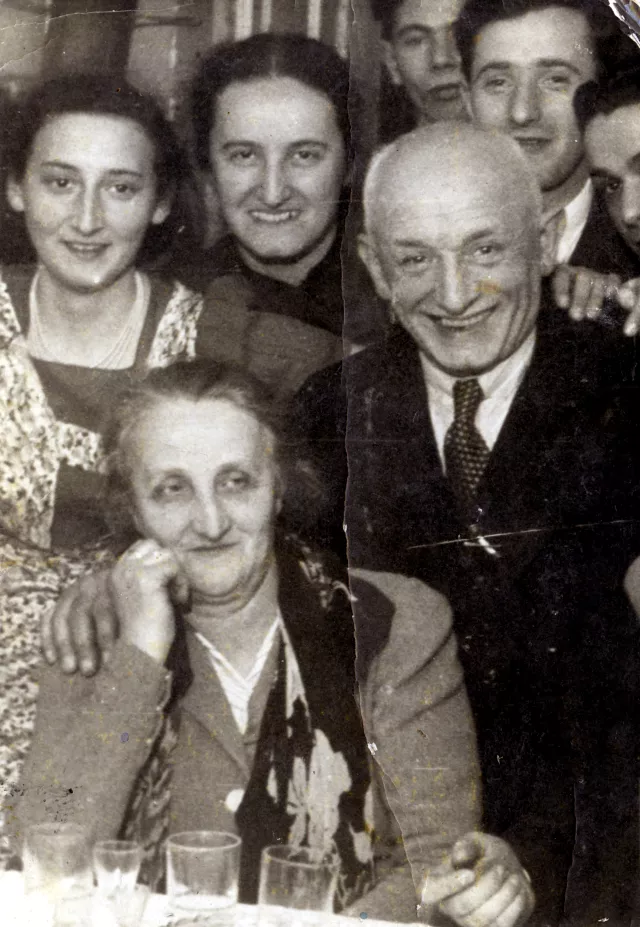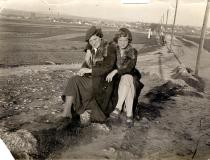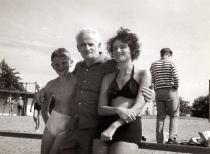Fajgla and Koppel Gringras
Only this one photograph from the Kielce ghetto period has survived that my parents, Fajgla and Koppel Gringras, are also on: Father, Mother and a group of other people, a wedding - it was 1941.
The last time I met up with my parents in Kovel. Kovel made an awful picture at that time. Papers on the streets, wind, cold - that was the end of the year 1939, December was approaching.
The Kovel landscape reminds me of late, cold fall. Deserted streets, shops closed, boarded up, newspapers drifting around, just a wasteland, the awful sight that town made! To this day my vision of Kovel is of something drab and awful.
I tried to persuade my father not to go back to Kielce. But he was being persuaded by my eldest sister's husband, Obarzanski, who said that you could work things out with the Germans, you could get along, that it was not so bad.
Well, there were unpleasant things, sometimes you could get a fist in your face, but on the whole, he said, if you tuck him a goose - a roast one, of course - under his arm, then you can get along with a gendarme.
It's livable with, come back. And Father, who was getting on in years - whichever way you look at it he was over 50, with Mother and the two girls, without a real foothold, preferred to go back. Because he knew the Germans, he knew the Austrians, spoke German.
'It's peaceful there, why should we carry on knocking around here, what for?' And they went back, although I tried to persuade them, I remember as if it were yesterday, not to go back.
For another few years they lived in Kielce under the German occupation, until the liquidation of the Kielce ghetto. What my sisters did in that time I don't know.
Only one photograph from that period has survived that they are also on: Father, Mother, a group of people, a wedding - it was 1941. The ghetto in Kielce was organized in 1941 and the deportations took place in 1942. And ultimately, of course, it ended as it had to end.
Both the girls went to the Birkenau camp. Mania died at the age of 18 or 20. Nobody knew anything about them. They were liquidated by the Germans very quickly.


































































